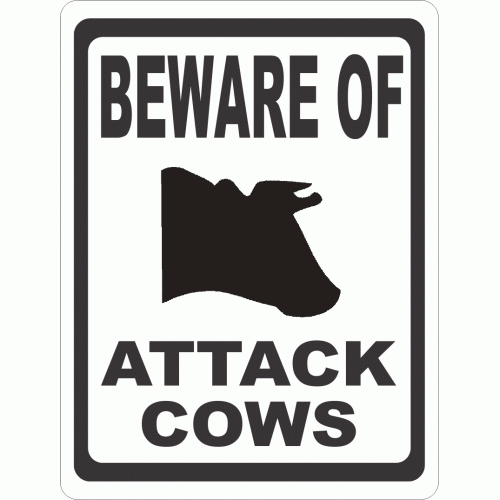There is no question that SARS-CoV-2 is zoonotic(1) - it passed from animals to humans - and it is not the first, or even all that rare. Zoonotic diseases are half of all human pathogens. The new paper leaps from that to suggesting that 'intensive' agriculture will mean pandemics become more common. Then the philosophers dabble in policy and suggest a "zoonotic tax" on your hamburger. Next April 1st I think I will have copies of this paper sent to actual ag scientists just to see how they react to claims about their expertise from the Florida Atlantic University Center for the Future Mind.
To lay some circumstantial groundwork for their "precautionary principle" belief that going vegetarian will mean fewer pandemics, the authors note that smallpox has existed for a long time and they correlate that to an increase in livestock. The curves are similar, but it is a spurious correlation. When agriculture came into existence, so did proper villages. More people in smaller spaces with no hygiene meant more disease.Not eating more meat, because disease didn't go up in rural areas where larger farms and lots of animals were. You truly have to know nothing about farming that didn't involve a computer keyboard to believe that more animals with far less human contact - only 2 percent of Americans are involved in agriculture of any kind - mean greater risk of human pandemics.

Hate pandemics? Blame a normal human diet.
The first known pandemic came 7,000 years after domesticated livestock so the example doesn't work in any sense. To add some sizzle for a New York Times reporter who might need something supernatural to write about, they use arbitrary terms like "justice" and "intensive", the kind of emotional verbiage activists use and doesn't belong in a science paper but is fine for philosophy magazines. What does intensive mean to you? 50,000 animals? 500,000? The largest ranches in the US are only about 35,000 steers, and on 700,000 acres of land. That doesn't sound intensive to me, but "intensive" shouldn't be used anyway, because it is entirely arbitrary and has no accepted meaning.
Less intensive agriculture was not safer, any more than raw milk or sprouts soaked in fetid water are safer today. It was far less safe. And would be now. Getting rid of modern agriculture means more disease and more social injustice, not less. American agriculture has standards and does so while keeping food affordable for the most poor. Standards are why even food with the organic label - exempt from real oversight(2) - will get recalled when it is tainted with E. coli.(3) The economic justice of affordable food is why everyone in developed nations can afford to be fat if they choose.
Forgetting the secret agenda for a moment, it is simply wrong to oppose commercial meat production if you care about pandemics. If you want to prevent disease, it is better to have a few thousand cattle in one place, with a select number of humans interacting, rather than for every family to have a steer and a cow and the resulting urine, feces, and increased chance of zoonotic disease.
Perhaps the goal is really to evangelize bans on meat and pandemics are just a veil. I can't speak to that but it is the only way some of these postmodernist claims make any sense.
NOTES:
(1) Though there is lingering concern that it escaped from a nearby lab in Wuhan. China removing their database of 16,000 bat coronavirus samples while making the World Health Organisation allege that COVID-19 might have been caused by American frozen food added to concern it escaped from the Wuhan Institute of Virology due to sloppy safeguards. During the 2020 election, Democrats said any blame of a lab in China was just Republican racism but more recently President Biden tasked his intelligence agencies with looking into it using new rigor.
(2) Other than the companies that sell 'certified organic' stickers saying that their clients only use certain toxic pesticides, with no surprise spot inspections done by independent groups. When the people who make their money selling stickers also have to confirm that the companies buying the stickers are doing what the sticker suggests, with no testing needed, there is room for fraud. And 25 percent of organic food is just food with regular pesticides, according to independent lab tests.
(3) Activists can also try to argue that meat production has risen in the last 50 years, as has coronavirus, but that is also creating an agenda and choosing facts to match. Coronavirus is in the same family as the common cold, that is why 99 percent of people who got COVID-19 didn't know it, and it was only discovered as distinct from the cold virus, you guessed it, around 50 years ago.




Comments